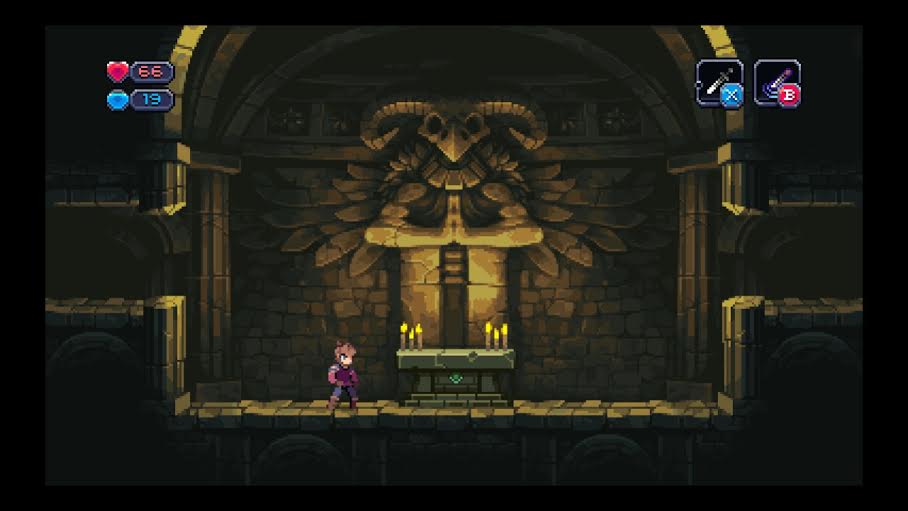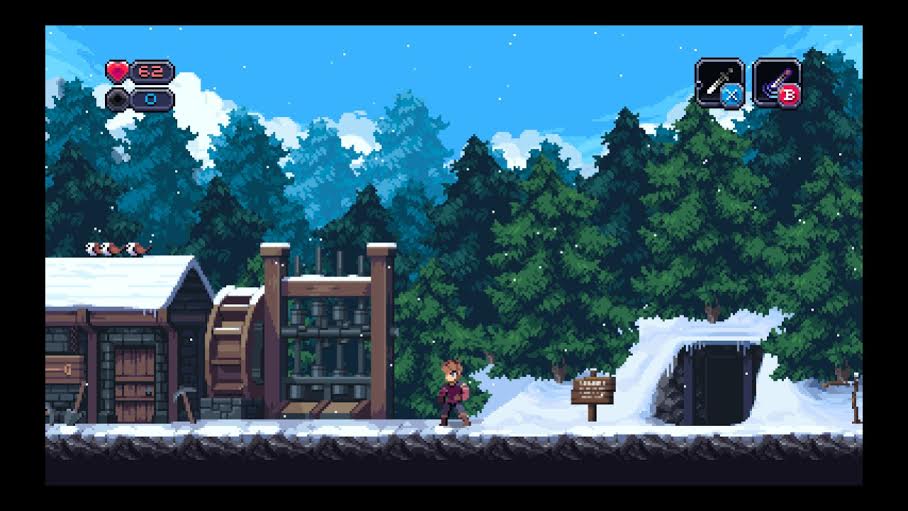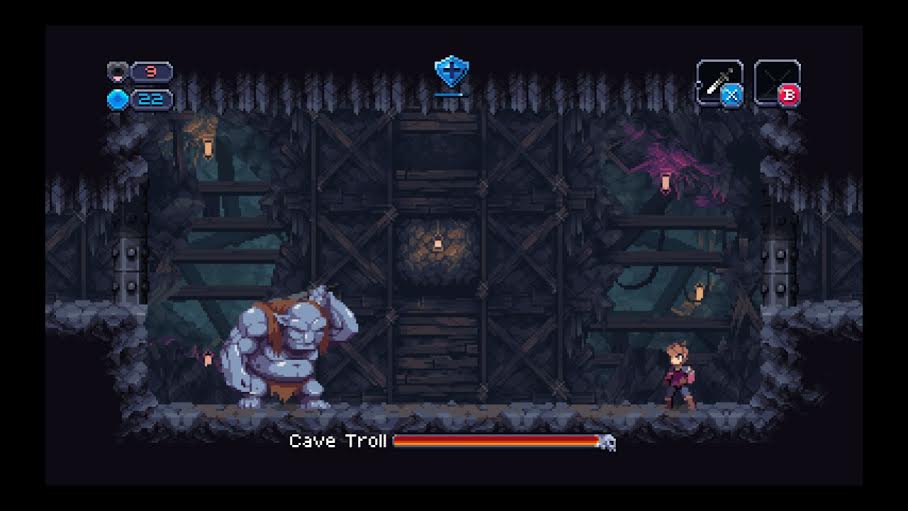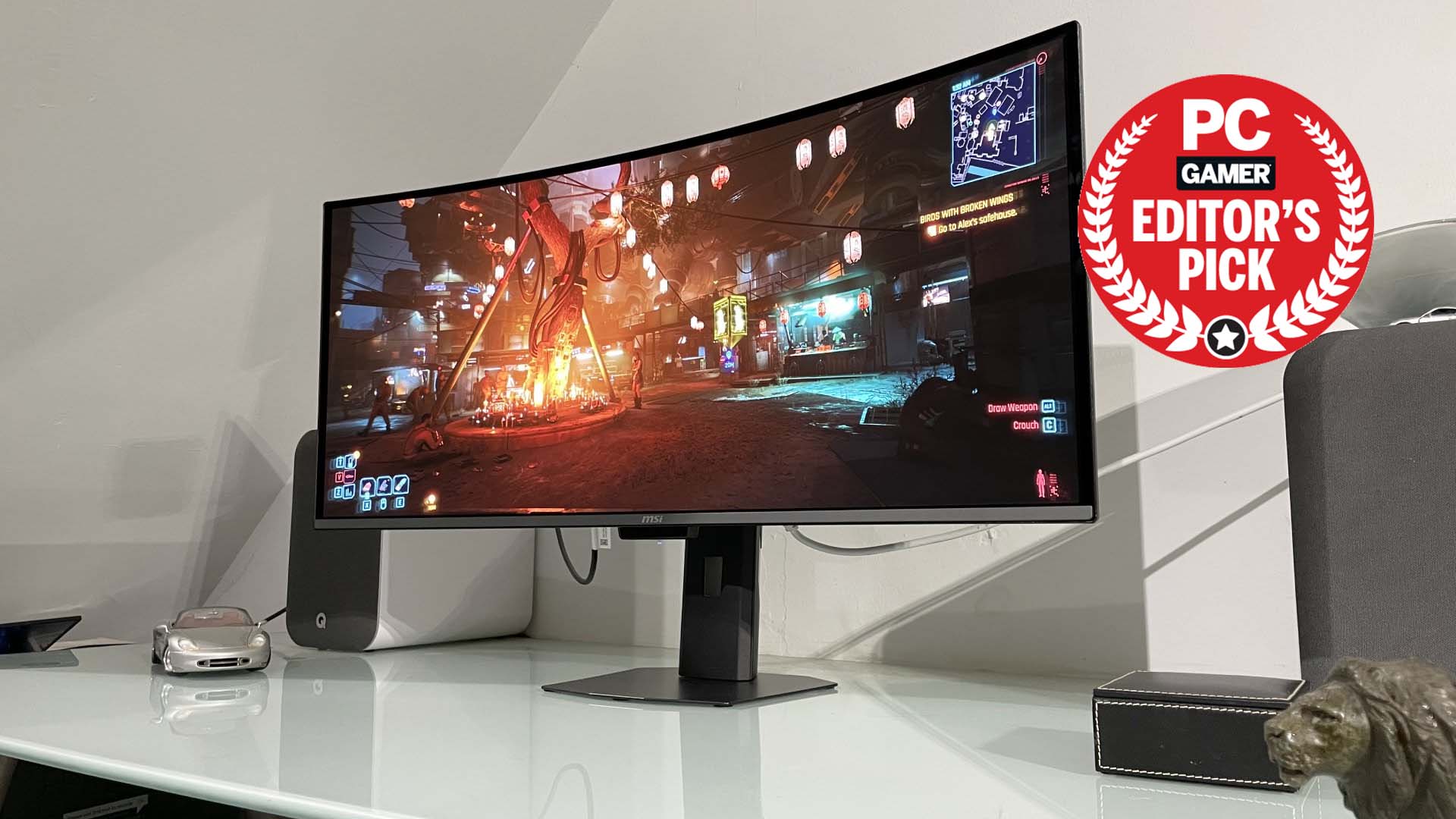Chasm preview: sprawling, procedural dungeon crawling

It took half an hour to find and kill the first boss in Chasm. It was pleasantly simple. I’d stumbled onto a cache of magic knives and there was a fountain outside the boss room doling out armor buffs. Shortly after killing the boss I was rewarded with a new ability: I could traverse crawl spaces with a fancy new power slide. Think Metroid’s ball formation, except less bally and more kicky.
In Metroid—actually, in most successful Metroidvania platformers—obstacles in branching levels serve as clues that you need to search out a corresponding power-up or item. In Chasm, which is procedurally generated, I wasn’t so lucky. It took me half hour to find a non-tutorial crawl space to slide through, only to find that I’d also need an ability to grab ledges (or so I found out later). In the end, it turned out I was barking up the wrong tree anyway: there was a broken elevator that needed fixing.

I tell this anticlimactic story to illustrate the differences between Chasm and other procedurally generated platformers. Next to the two big ones—Spelunky and Rogue Legacy—it errs strongly in the latter’s direction but plays out at a much slower pace, at least in the beginning. The difficulty curve is unusually mild, and staying alive wasn’t a problem unless I was playing in the game’s permadeath hardcore mode. On the other hand, finding my way around was confusing, but rarely taxing. The mines in Chasm feel like locations to be explored and memorised. In this way, it’s kinda reminiscent of Steamworld: Dig, without the digging. It's not a game to snack on: it's an adventure.
As soldier Daltyn you’re tasked with exploring mysterious mines in order to discover—and hopefully ward off—malevolent, supernatural forces. Exploration rewards with gold, power ups and the usual RPG adornments such as rings, armors, and helms. It’s basically a sidescrolling dungeon crawler. Push deeper into the mines and there are shortcuts to higher levels, as well as bonfires to save progress.
I explored two of six major areas. Expect to spend a lot of time in Chasm retracing your steps, poring over the in-game map for unexplored avenues, and grinding for gold in order to better equip for high HP bearing bosses. In the alpha build I played Chasm didn’t seem to be a platformer demanding superhuman dexterity, and its slow, considered pace is a refreshing departure from the nerve-wracking reflex-driven games it’ll be lumped in with. Sometimes you’ll encounter a boss so juiced up on HP that grinding will be essential, and that’s the point: this is an RPG. When you encounter a seemingly insurmountable challenge, there’s always another route to take, or a better piece of armor to work towards.

The procedural generation lends itself to repeated playthroughs, but it doesn’t feel necessary unless played in hardcore mode. Applying random systems to a genre traditionally reliant on deliberate level design is risky, but after a while the layouts become familiar—sometimes even intimate—if not especially exciting. The random sprawls are fun to navigate on a moment-to-moment basis though, and the snappiness of the platforming and combat somewhat compensates for the interminable environments.
That’s not to say Chasm isn’t beautiful, because it is. Especially the overground hub area, and especially the sparse, melancholy music. Chasm manages to avoid the identikit whimsy common in pixel art platformers, opting for a strange, understated dreaminess. After a couple of hours spent in the mines, I’m eager to discover what lay at the bottom, but I’m also hopeful that the final game will offer more incentive to explore every nook and cranny on the way. Based on my time with it, I'm fairly confident it will. Chasm will release on Steam later this year.
Keep up to date with the most important stories and the best deals, as picked by the PC Gamer team.

Shaun Prescott is the Australian editor of PC Gamer. With over ten years experience covering the games industry, his work has appeared on GamesRadar+, TechRadar, The Guardian, PLAY Magazine, the Sydney Morning Herald, and more. Specific interests include indie games, obscure Metroidvanias, speedrunning, experimental games and FPSs. He thinks Lulu by Metallica and Lou Reed is an all-time classic that will receive its due critical reappraisal one day.

